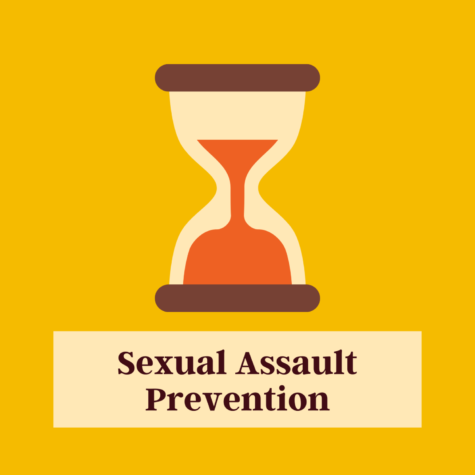OPINION | Climate survey is crucial, not sufficient
February 16, 2022

In February 2020, former Views Editor Deeya Patel said, “Tulane in 2018 was a Tulane in despair.” Patel emphasized the “anger” and “urgency” that pervaded Tulane University’s student body following the release of the results of the 2017 Sexual Misconduct Climate Survey.
The only subsequent sexual misconduct climate survey since 2017 was originally scheduled to run in spring 2021. However, the university cited the COVID-19 pandemic as reason to postpone the survey until the spring 2022.
The 2022 Sexual Misconduct Climate Survey began on Jan. 28 and will run until Feb. 20.
Five years have passed since the university ran the first climate survey, and when the results of this one are released, we will likely be a Tulane in despair once again.
The events of this past academic year have shown that sexual assault is still a problem in the foreground of student’s minds, and one that they will not let the university and its administration ignore.
On Nov. 17, the Instagram account @boysbeware.tulane was shut down. The Tulane community lost an online forum where female-identifying and non-binary students could anonymously share stories of sexual misconduct while offering support for peers.
Later that day, “Vigilante Justice,” an anonymous, unverified list of alleged sexual assailants, circulated around the student body before being removed shortly thereafter. Students gathered outside McAlister Auditorium to protest sexual violence and share personal testimonies of sexual assault.
On Nov. 28, the Tulane Hullabaloo published ‘Expel Rapists’: Survivors testify to sexual violence at Tulane, an account of the events of early November, victim testimonies surrounding sexual violence, student experiences in the reporting process and Title IX Office’s statistics on sexual misconduct cases.
Once again, the responsibility of addressing the severity of sexual assault on Tulane’s campus fell on students. It fell on the victims who were willing to speak about their own deeply traumatic experiences. It fell on student advocates who are part of organizations like University Student Government, All In and Sexual Aggression Peer Hotline and Education that work tirelessly to advertise resources and work with victims. And, it fell on student journalists who have earned enough trust within the student community to collect stories, provide the formats for them to be told and publish them.
All this is to say that the 2022 Sexual Assault Climate Survey is the first administrative policy directed at sexual misconduct since the events of November. It is a surveillance method and a step towards new policies, but it is a measure that is long overdue.
On Nov. 23, 2021, Robin Forman, senior vice president for academic affairs and provost, sent a school-wide email titled: “Our Commitment to Ending Sexual Assault.” In this email, Forman reiterated the importance of the climate survey.
He wrote, “Understanding the need to address sexual misconduct within the Tulane community, President Fitts commissioned a Sexual Misconduct Climate Survey in 2017. This survey helped us gain a deeper understanding of our campus community’s experiences relative to sexual misconduct and provided guidance for many positive changes on how the university works to prevent sexual violence and support survivors.”
The email also mentioned the 2017 survey’s influence in creating All In, “a university-wide commitment to change the campus culture and eliminate sexual violence”
Since the original climate survey, five undergraduate classes have graduated from Tulane. One of these undergraduate classes, the Class of 2021, began their time at Tulane in the fall of 2017, following the data collection of the 2017 climate survey. They graduated in the spring of 2021, before the data collection of the current climate survey.
The Class of 2021 was never represented in the sexual misconduct surveillance measure that continues to be a fallback point for the Tulane Administration when faced with any controversy surrounding the issue.
The climate survey, while being a useful measure to understanding the culture of sexual misconduct at Tulane, seems to be weaponized by the administration to buy themselves time. It acts as an eternal first step in a promised plan to handle the problem of sexual misconduct that refuses to go away.
After the 2022 survey ends, the Tulane community will anxiously wait, likely a year, to obtain the results. Then, the university will probably address the data, offer their condolences, reaffirm their commitment to ending sexual violence and propose new plans and policies.
However, if history is any indicator of the future, the university will reference the 2022 survey when chaos inevitably erupts over sexual misconduct once again, and students wonder why sexual violence is a common experience despite all the university’s talk.
Tulane should be running a climate survey more often than every five years, or when community pressure boils over to the extent they know they must do something — anything. The university must hold itself accountable for the effectiveness of its policies and rely on their own methods of data collection to understand the culture of sexual violence at Tulane.
They must understand this culture, even if it means admitting that 41% of undergraduate women report experiencing sexual assault, 18% of undergraduate men report experiencing sexual assault, and the university failed to protect these students and properly address physical and mental security they lost.








Leave a Comment